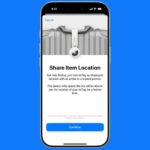In recent times, data breaches have become a concerning trend, especially in the healthcare sector, where the implications can have long-lasting effects on individuals. Just as we reported on a significant breach at a vein center affecting nearly half a million patients, another alarming incident has come to light. This latest breach involves ConnectOnCall, a telehealth platform owned by Phreesia, exposing personal and medical information of over 910,000 patients.
The Breach Timeline: What Happened at ConnectOnCall?
Phreesia, a notable healthcare software provider, reported that its ConnectOnCall service was compromised between February 16 and May 12, 2024. During this period, an unidentified hacker infiltrated the platform, gaining access to sensitive data from provider-patient communications. ConnectOnCall is primarily utilized by healthcare providers to manage after-hours communications and automate patient call tracking.
Upon discovering the breach on May 12, Phreesia acted quickly. The company enlisted the help of external cybersecurity experts to secure the platform and promptly notified federal law enforcement about the incident. According to a press release from the company, “On May 12, 2024, ConnectOnCall learned of an issue impacting ConnectOnCall and immediately began an investigation and took steps to secure the product and ensure the overall security of its environment.”
Extent of the Breach: Who Was Affected?
In a report submitted to the U.S. Department of Health and Human Services, it was revealed that 914,138 patients were impacted by the breach. The compromised data includes names, phone numbers, medical record numbers, dates of birth, and information regarding health conditions, treatments, and prescriptions. In some cases, Social Security numbers were also exposed.
Phreesia has assured that its other services, including the patient intake platform, remain unaffected. The company has taken ConnectOnCall offline to reinforce its security before bringing it back online in a more secure format.
The Consequences of Compromised Health Data
The ramifications of this breach are profound, primarily due to the sensitive nature of healthcare data. Unlike financial data, which can often be frozen or altered, health information is permanent and highly sought after on the dark web. Cybercriminals could potentially use this stolen data to commit identity theft, fraudulently obtain prescription medications, or submit false insurance claims.
Additionally, the detailed health information exposed—encompassing diagnoses, treatments, and medications—can be exploited for targeted phishing attacks. Scammers could use victims’ medical histories to craft convincing scams, increasing the chances of successful deceit.
Notification and Support for Affected Patients
Phreesia has begun mailing notification letters to all affected individuals for whom healthcare providers had valid mailing addresses as of December 11, 2024. For those whose Social Security numbers were compromised, the company is offering identity and credit monitoring services to help mitigate the risks associated with identity theft.
Protecting Yourself: Tips for Patients
In light of this significant breach, it’s crucial for patients to take proactive steps to safeguard their personal information:
1. **Monitor Financial and Medical Accounts**: Regularly check your medical records and insurance statements for any unauthorized activity. Utilize patient portals to access and track your medical history.
2. **Implement Strong Passwords and Two-Factor Authentication**: Create unique passwords for your accounts and consider using a password manager to help store and generate secure passwords. Always enable two-factor authentication where possible for added security.
3. **Be Wary of Phishing Scams**: Avoid sharing sensitive personal information unless absolutely necessary. Verify the legitimacy of requests for personal data to protect yourself from scammers posing as healthcare providers.
4. **Install Antivirus Software**: Keep antivirus software updated on all devices to protect against phishing emails and other cyber threats.
5. **Consider Identity Theft Protection Services**: Enroll in services that monitor your personal information and alert you to potential threats. These services can provide peace of mind and assistance if your identity is compromised.
6. **Freeze Your Credit**: A credit freeze can prevent new accounts from being opened in your name. Contact major credit bureaus to request this protection.
7. **Minimize Online Presence**: Use personal data removal services to help delete your information from various websites, reducing the chances of it being exploited.
The Need for Enhanced Cybersecurity in Healthcare
The breach at ConnectOnCall underscores the urgent need for robust cybersecurity measures in the healthcare industry, where the stakes are significantly higher than in many other sectors. With over 910,000 patients affected, this incident highlights the severe risks posed by cyberattacks on healthcare platforms. If you were impacted, it is essential to remain vigilant by monitoring your accounts, enabling fraud alerts, and considering identity theft protection services.
Should healthcare providers face stricter regulations for safeguarding sensitive patient information? Share your thoughts with us.
For more tech tips and security alerts, consider subscribing to our CyberGuy Report Newsletter.
Stay informed and protect your personal information!









